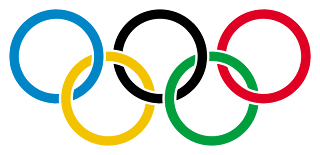 |
| courtesy of slamonline.com |
With Olympic play starting tomorrow here's how the countries rank from 1-12.
1. USA- Even without the injured Dwight Howard, Dwayne Wade, Chris Bosh, and Blake Griffirn, Krzyzewski's roster is teeming with depth, length, strength and plain hard-to-guard talent. Tyson Chandler's penchant for foul trouble and the ever-present fear that one bad shooting night at the wrong time could doom the Americans, There isn't a coach in this field, having witnessed the withering defense Team USA can produce, who wouldn't trade for Coach K's problems.
11. China- Thanks to the huge production it receives on the international stage from Yi Jianlian and the influence of American coach Bob Donewald, China won the Asian title in 2011 to secure Olympic qualification. Just getting to London was China's Olympics, even though (A) Yi is unquestionably a different player with his national team's jersey on and (B) no one in China wants to hear or read that.
2. Spain- No one question's Spain's credentials. It has the talent (seven players with NBA experience) and the expertise in FIBA conditions (reigning European champions and 2006 world champions) to upset the United States -- and it's certainly due after a few close calls against Coach K-led squads in 2008 and 2010. However, injuires to Ricky Rubio, Marc Gasol, Rudy Fernandez, and Juan Navarro could hamper their chances, Spain is a solid silver medal favorite.
3. Brazil- Outside of Spain, no team worries Team USA more than the Brazilians. They have their share of NBA talent with Tiago Splitter, Anderson Varejo, Nene, and Leandro Barbosa, their discipline and system gives teams problems, expect Brazil to compete for a medal.
4. Argentina- Eight years removed from the gold medal in Athens that shook USA Basketball to its core and prompted the Yanks to revamp their whole program, Argentina has been subjected to a lot of the dismissive "they're done" talk that greets Ginobili's Spurs most years. The truth is that Ginobili & Co. are indeed old by tournament standards, with an average age of 33 in the starting lineup, but don't forget that no team played the Americans closer in their five warm-up games. Although depth and size are issues, I'm not going to be the guy who writes off the group that has earned respect at this level.
5. Russia- The Russians finished third behind Spain and France at EuroBasket 2011, but they're a feared wild card in London, they are extremely physical and have size all over the floor. They are lead by the rejuvenated Andrei Kirilenko who won the Euroleague MVP season at CSKA Moscow.
6. France- They have some familiar names (Nicolas Batum, Ronnie Turiaf, Boris Diaw) and some young up and coming NBA talent but they are very Tony Parker dependent. As Parker goes so will France.
 |
| courtesy of aviationnews.com |
7. Lithuania- Dangerous floater is probably the best way to describe Lithuania. This roster, thanks in part to the injury absence of seasoned big man Robertas Javtokas, lacks the depth and know-how of the Lithuanian squads that racked up three bronzes and two fourth-place finishes in their first five trips to the Olympics as an independent nation. But you can rest assured that no one looks forward to playing these guys, they are a dark-horse contender.
8. Australia- Australia has the best chance to emerge from the bottom five teams to claim the final spot in the single-elimination round that begins with the quarterfinals, thanks in part to a couple of strong exhibition showings against Spain, even without their best player Andrew Bogut.
9. Great Britain- It's difficult to see how Team GB is going to get that far in its current state, though, with two of its top six players -- point guard Mike Lenzly and combo forward Dan Clark -- carrying worrisome injuries. The hosts and their deep American coaching staff (Chris Finch, Nick Nurse and Paul Mokeski) need huge play from Loul Deng, it will be a struggle to get past Group B.
10. Nigeria- As well as Nigeria played in the last-chance qualifying tournament earlier this month in Venezuela just to get to London -- besting the John Calipari-coached Dominican Republic in the final to claim the final Olympic spot that had been widely forecasted to go to Greece -- this ranking might be a spot or two low.
 |
| courtesy of thefoxisblack.com |
12. Tunisia- Its players are largely unknown even to folks who work in the sport, but it's a group that has been together for some time and, by all accounts, knows how to play together. The reality, though, is that this is Tunisia's maiden Olympics after winning the African title in 2011, and roughly no one sees them winning a game.


